[5 Reasons] Why Does My Dog Take My Spot?
If you’re a pet owner, your dog probably does many things that confuse you. One of those things may be taking your seat on the couch as soon as you get up for a drink or a snack. It’s cute (possibly), but you’re wondering, “Why does my dog take my spot?”
Your pup might be doing this for any number of reasons, but some are more likely than others. In most cases, your dog merely wants to show you affection. However, sometimes aggression and separation anxiety is the root cause of this spot stealing.
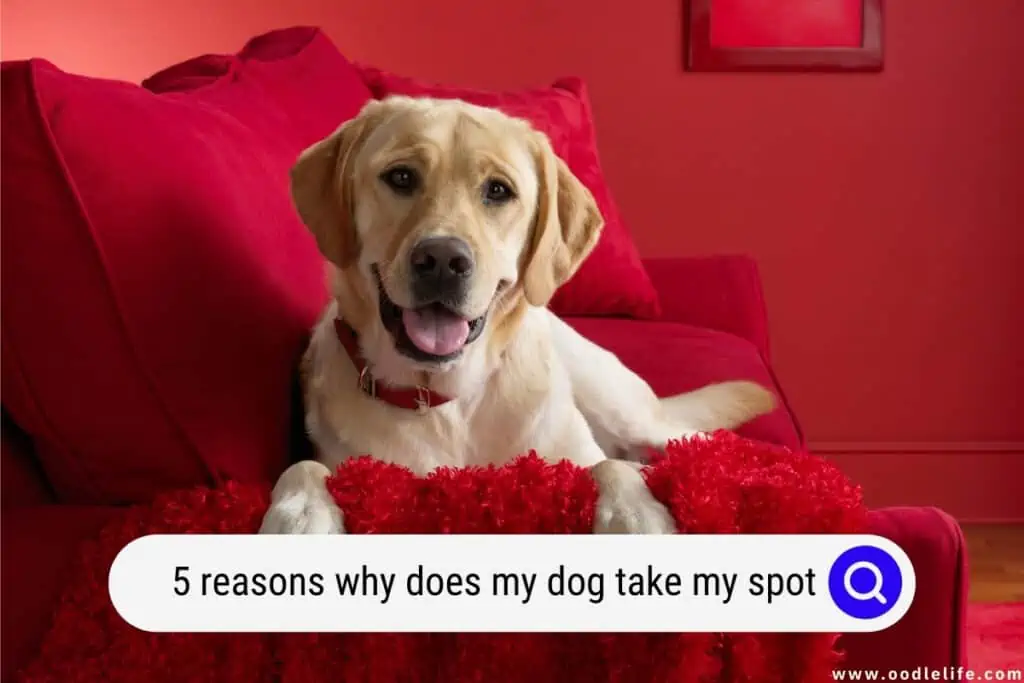
You may also be wondering if your dog’s behavior is something to be concerned about. I’ll address this question and more in today’s article, so keep reading to find out.
Why Does My Dog Take My Spot?
First, let’s take a closer look at what drives this habit, which might happen every once in a while. Or perhaps it happens so often that you now expect to find your dog sitting in your armchair five seconds after you get up.
Whatever the frequency, here are the five most likely reasons your dog is doing it:
Affection & Safety
In most cases, the cause is benign (and sweet). Your dog’s just trying to show affection and feel protected.
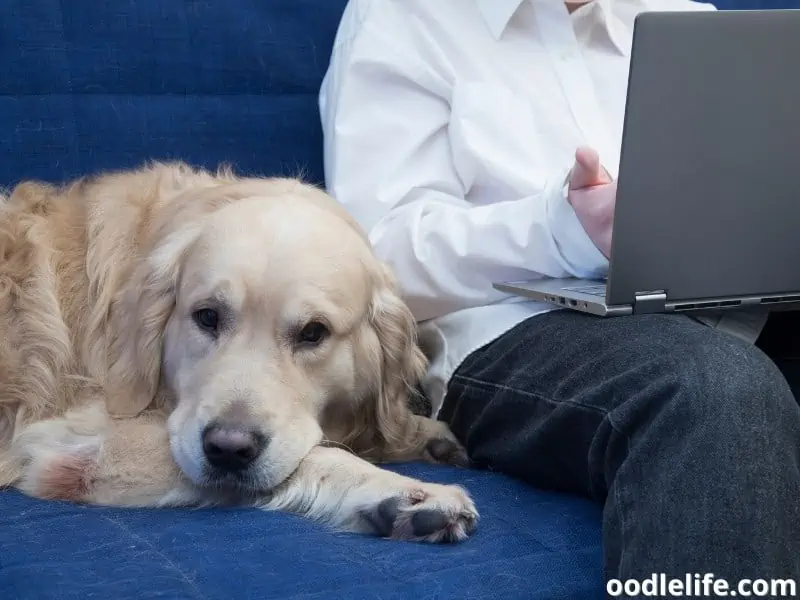
You probably already know that dogs are incredibly social pack animals. They love to sleep in big piles with their siblings, which helps them feel safe and secure. There’s strength in numbers, and the pack provides essential protection against predators.
For wild dogs, being with the pack is often the difference between life and death.
Modern dogs have retained much of this ancestral pack behavior. But instead of having other dogs, they have you. Dogs that live with humans see their humans as security, and your scent is familiar to them.
Anywhere you’ve been must be safe by their reasoning, so occupying your seat (or sleeping in your bed) is incredibly comforting to them.
Your pup may also be doing another sweet thing. Dogs are highly intelligent and pick up on our routines. They know our favorite haunts in the house.
By taking your place, they see themselves as guarding your territory. If this is the case, your pup will usually cede your spot without complaint. They’re also likely to snuggle you once you’re back.
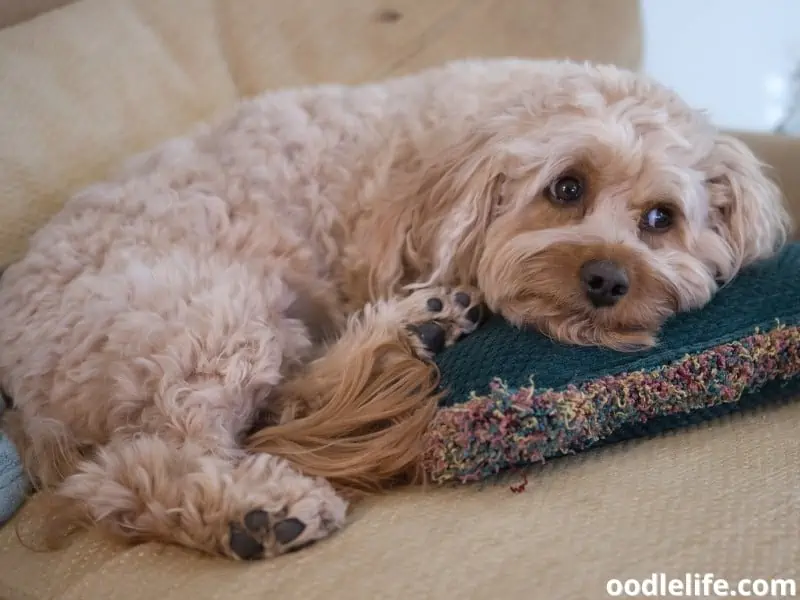
Warmth
There could be another very simple reason your dog likes to swipe your recently vacated spot: If you were sitting there for a while, chances are that seat’s pretty warm. And dogs love warmth.
Ever witnessed your pup burrowing in your bed covers? That’s why.
So, as soon as you get up, you’re tempting her with the warmest seat in the house. And who could resist that?
Dominance
Another reason your dog might be trying to take your spot is to assert its dominance over you.
I already talked about packs and how dogs have retained much of that ancestral behavior. But aside from providing protection, packs also have a strict hierarchy. The alpha is the most respected dog in the pack.
He’s the one who’s in charge and gets the first choice of everything. He has the first access to food, water, females, and—that’s right—lounge spots!
With all the perks that come with being an alpha, what dog wouldn’t want to be one? Beta dogs, despite being submissive, are also ready to demonstrate dominance if needed. To reach this position, they have to exert dominance over the established pack leader.
Then, they have to take the alpha’s position to become the new leader.
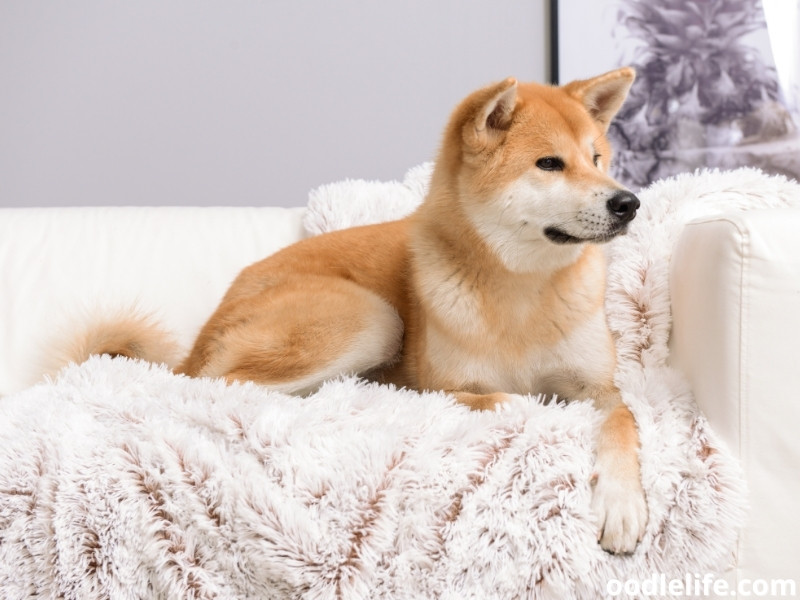
Dogs that live in human homes look for a similar hierarchy. Normally, the owner is the alpha, and the dog is the beta. But taking your spot is sometimes a sign that your dog is not respecting your authority.
It may even be a direct challenge. You can tell if your pup is challenging you if he growls or snarls when you try to remove him. He may also stare at you.
This dominance-asserting behavior is obviously not something you want to encourage, especially if it’s aggressive. I’ll go over some strategies on how to change it below.
Separation Anxiety
Separation anxiety may also be the root of your dog’s spot-stealing behavior. Some pups become overly attached to their humans, and they experience intense anxiety when their owners are not around. When you leave your spot, even if you’re just in the other room, your pup may take your place because it is experiencing distress.
Nobody wants their beloved pup to suffer, so it’s vital to recognize the signs of separation anxiety so you can address it. Your dog’s body language should tell you a lot about how they’re feeling. If your pup watches you like a hawk and then cowers or shakes while in your spot, there’s a good chance he’s experiencing separation anxiety.
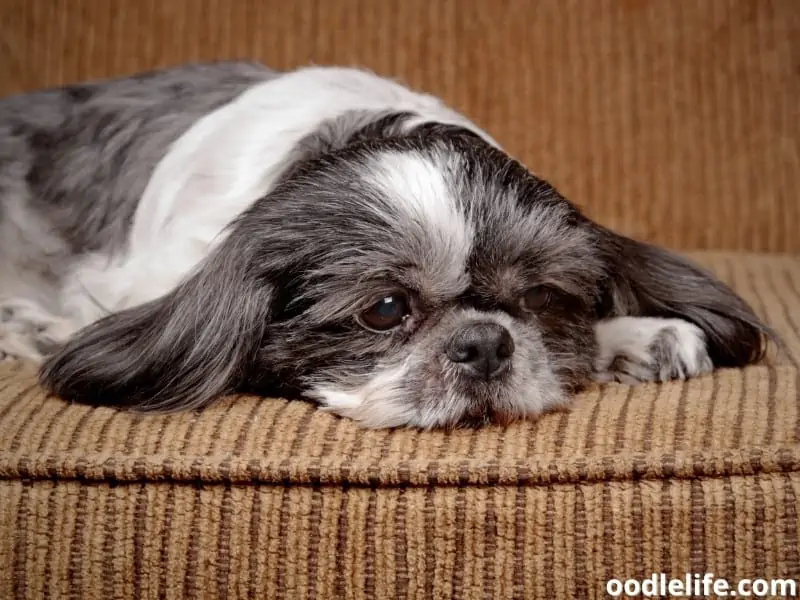
Dogs that suffer from this condition may also exhibit some other common signs:
- Unwillingness to leave your side. You may feel your pup is always close by, no matter what.
- Destructive behavior when you’re gone, such as chewing and digging
- Excessive barking or howling, which may only happen when you’re away
- Urinating and defecating, which you discover upon your return home
- Pacing, which occurs when the dog’s owners are not around
Attention
Finally, your beloved pooch might simply be looking for your attention in one way or another. They’ve probably been rewarded with snuggles or head scratches after leaning into your seat. It stands to reason that they’d do it again to get attention—even after you’ve vacated your chair.
Another possible reason is that they get a big reaction from you when engaging in this behavior. It might be funny to return to your seat and find that your dog has occupied it. Maybe they’re even lounging in a way that says, “I’m the king of this couch!”
So, you probably laugh, then make a big show of kicking your dog out of your seat.
What does your dog learn from your reaction? That “getting caught” earns them all kinds of attention! And what dog wouldn’t want that?
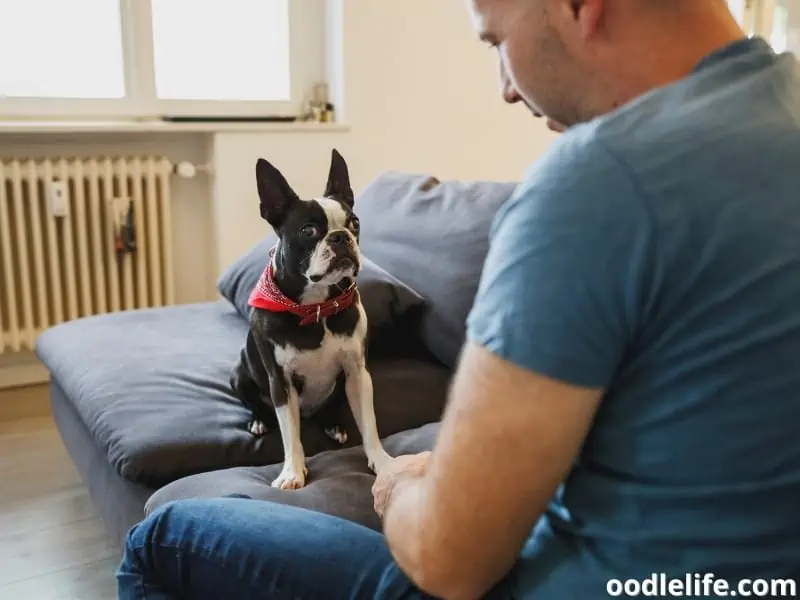
Is It Bad That My Dog Steals My Spot?
Several pet owners wonder if this behavior is something they need to address. The answer is that it depends.
Some people find it pretty amusing, especially when they find their dog peering back at them with loving and adorable eyes. Spot stealing now and then is absolutely nothing to worry about if it happens on occasion and it doesn’t bother you.
But this behavior might be something you need to address. If accompanied by aggressive antics, you should try to correct them. Or if it’s a sign of the separation anxiety I talked about above, you should speak with your vet to find out how to ease your dog’s anxiety.
Maybe you don’t like your dog infringing on your territory, and that’s a valid reason to train your dog not to do it.
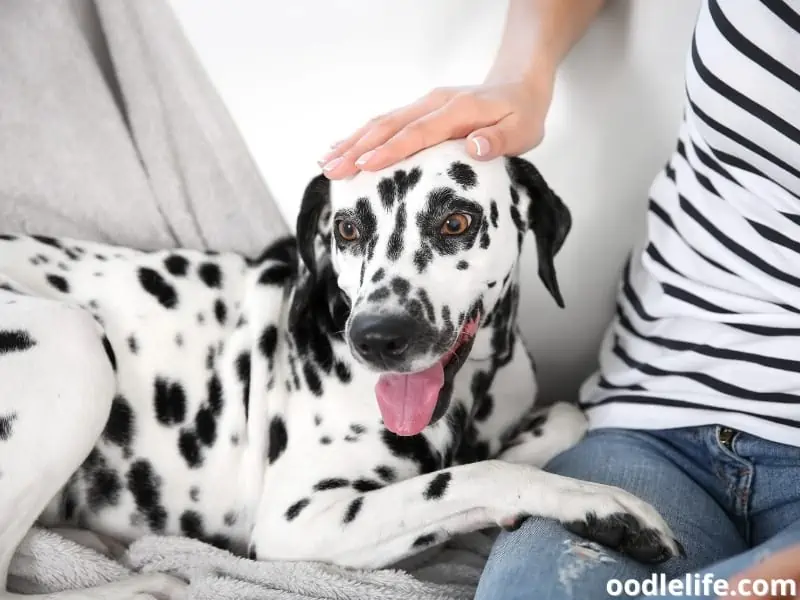
How To Stop Your Dog From Stealing Your Spot?
Here are some ways to stop seat stealing.
Try At-home Methods
You can start on your own with at-home training. Basic commands are helpful, especially ones like “move,” “down,” and “off.” Teaching commands shows the dog that you’re in charge, and most people can manage them quite well on their own.
Remember to use lots of positive reinforcement and treats to get the desired behavior and never yell at or hit your dog. Some breeds respond better to training than others, so you may need a bit of patience if you’re dealing with one of those stubborn breeds. There are also plenty of online resources and tutorials to help.
And a final tip for any pet owner doing solo training is to get your pup their own doggy bed. It’s helpful to have a space just for your dog.
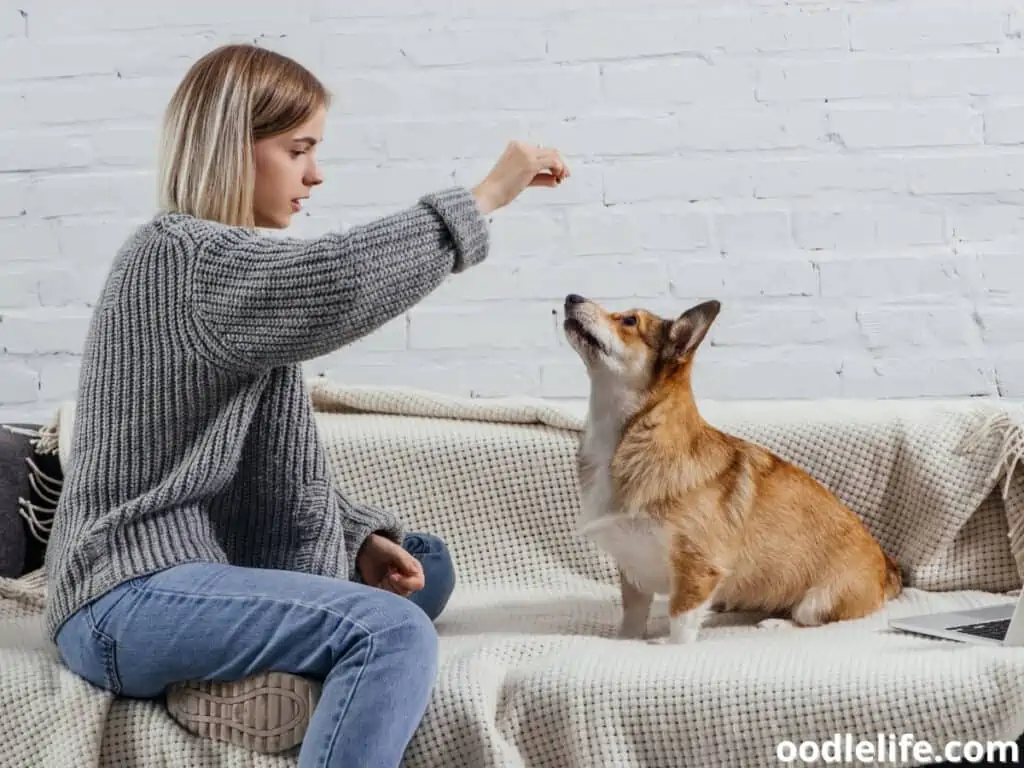
Hire a Professional
Should your at-home efforts fail, it may be in your best interest to hire a professional. You may even want to start with this option. Not everyone feels confident training their dog, especially older dogs whose behavioral patterns are well-established.
Whether you take your pup to a doggy training school or hire someone to give you one-on-one sessions, the professionals will give you plenty of tailored advice. They can also provide insight into what is causing your dog to act this way. Sometimes, dogs act out because of changes, like the arrival of a new baby or power struggles with another dog in the house.
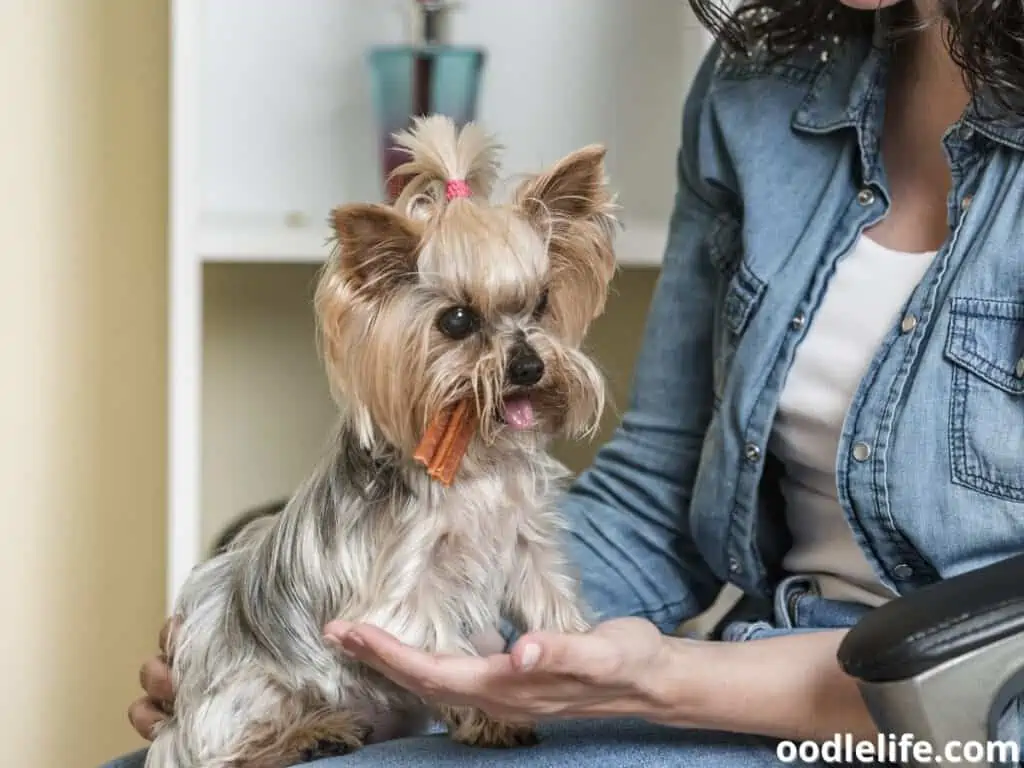
Final Thoughts
I hope you found this article informative. It’s not always clear what our furry friends are trying to tell us with their behavior, so sometimes it’s helpful to have a doggy “translator.”
A dog that takes your spot is usually just trying to show affection. But sometimes, they’re suffering from separation anxiety or trying to assert their dominance. Depending on the situation, you may need to correct this behavior.
Professionals like trainers and vets can provide invaluable advice.